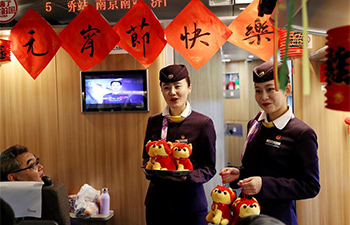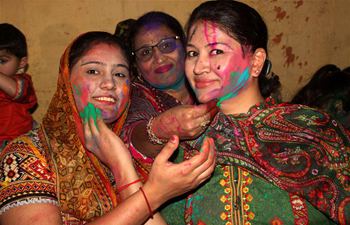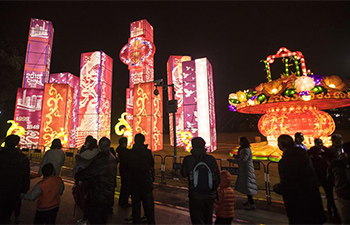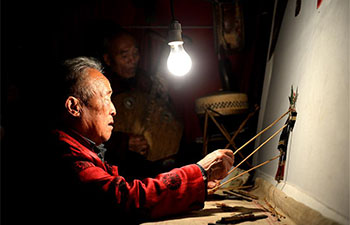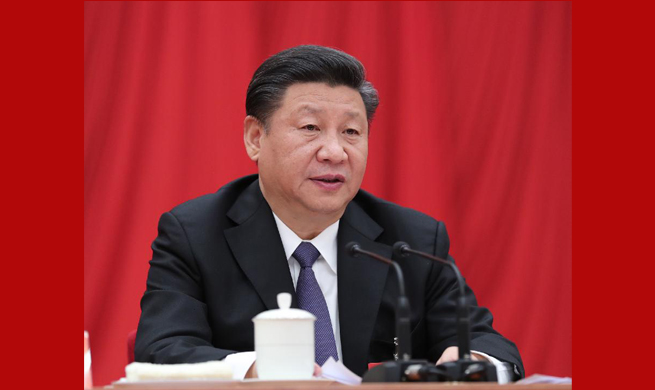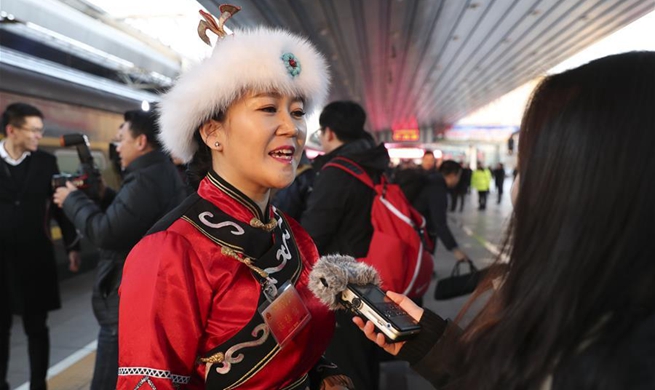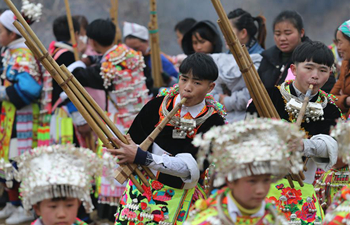LHASA, March 2 (Xinhua) -- Southwest China's Tibet Autonomous Region had lifted 530,000 people out of poverty during the five years to 2017, the regional poverty relief office said Friday.
At the end of 2017, about 330,000 Tibet residents still lived below the regional poverty line, defined as a per capita annual income of 2,300 yuan (362 U.S. dollars) at 2010 prices, the office said.
The poverty rate has been reduced to 12.4 percent from 32.3 percent at the end of 2012, it said.
Many poor people live in remote areas, while harsh weather and geological disasters have also complicated relief efforts, said Lu Huadong, vice director of the poverty relief office.
Tibet, which has a population of about 3.2 million, has vowed to lift another 140,000 people out of poverty in 2018.
In 2017, per capita disposable income for urban and rural residents reached 30,671 yuan and 10,330 yuan, up 10.3 percent and 13.6 percent, respectively.
From 2016 to 2020, Tibet plans to invest over 200 billion yuan (31.5 billion U.S. dollars) to eradicate poverty, with 90 percent of that investment going into infrastructure and poverty-relief projects in the poorest areas.
China has set 2020 as the target to finish building a moderately prosperous society and completely eradicate poverty.





